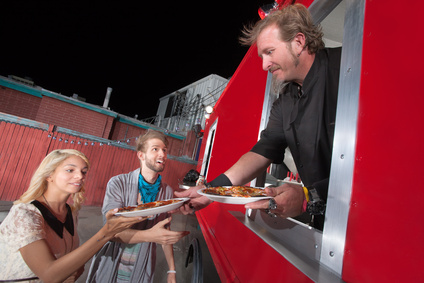Preventing Food-borne Illnesses at Festivals

How to use Food Safety Education to Create a Food Safety Culture
August 21, 2017
How good is your Food Safety Knowledge?
May 19, 2019You may have heard about the food-borne illnesses linked to the Edmonton Folk Fest Festival (Click here to read the news article). Unfortunately, I’ve seen and read about many different food-borne outbreaks originating from festivals. Special events or festivals like the Folk Fest are very common and can be a great way for businesses to raise their profile and increase profits. However, when a food business gets implicated in a food-borne illness at one of these festival, the opposite happens and it can be devastating.
The sad part is that these illnesses are preventable. If businesses and food handlers understood the challenges that festivals present and followed safe food handling practices, these incidents would not happen. Here are three key “risk factors” that festivals present and what food businesses can do to minimize these risks:
Equipment and Infrastructure Issues
At a festival or special event there is often less equipment, due to space constraints, and a harsher environment that can cause equipment to fail. For example, whereas in the restaurant you might have three coolers, at a festival you might only have one. If it is a hot day out, the cooler is likely having to work harder to keep the food cold and more likely to break. To complicate things even further, there are often other infrastructure issues like temporary power outages and water loss due to burst pipes etc… All this can be going on while your line ups are getting bigger – this is where panic usually hits and where staff can forget or worse, wilfully ignore, safe food handling practices.
The best way to deal with Equipment and Infrastructure issues is to anticipate them ahead of time and plan for them. For example, you can have extra coolers in place, have extra bottled water etc… By anticipating these issues and planning for them ahead of time, it reduces the panic when they actually happen. Having a plan ahead of time and talking with your staff about what to do during these events is critical.
Long Line Ups
Having long line ups is a problem every business would love to have, but if you are not prepared for it, disaster can happen. Unlike a restaurant where you might have a lunch rush or a supper rush, festivals can see long line ups for many hours at a time. Sometimes when employees are rushed they can be tempted to skip food safety steps such as taking food temperatures or filling up the proper sanitising strength for the santizer bottle.
Again, the best way to deal with this is for managers/owners/supervisors to be very clear with their staff that under no circumstances can food safety steps be skipped. Setting the expectations at the onset makes staff feel comfortable to take the time to make sure food safety is monitored and controlled.
Food Handlers
Some businesses might hire temporary staff during the festival season. These temporary staff may not always know how to handle food safely or even worse may bring with them unsafe food handling habits. It is important for any food business to ensure their new hires are food safe trained and to make sure food safety expectations are followed up.
This is where having a food safety culture, where all the “permanent” staff members can lead by example and demonstrate good food safety behaviour.
At the end of the day, it’s about keeping the food safe and protected from contamination. Regardless of the type of festival, the type of business or the number of staff, food safety rules are always the same. Food businesses have to make sure that these safe food handling rules are followed regardless of the challenges the environment presents. Every business owner/manager has a responsibility to understand the challenges they are facing for their specific event and make sure to plan for them. Not doing that can be disastrous for customers and the business.
Here are some basic food safety questions to help you think about your next special event:
- What equipment challenges are you likely to have and how can you plan for them?
- Are all your food handlers food safe trained and have you reinforced the importance of food safe handling for your business?
- What can you do to minimise food safety risks at the festival? E.g. have pre-cooked foods and adequate equipment to thoroughly reheat on-site.
- Can you assign someone (owner, manager, supervisor, head chef) onsite that is in charge of checking food safety i.e. taking temperatures, making sure staff handle food properly etc…?
- Did you plan to have extra utensils and supplies such as soap, paper towels, etc.. onsite?
Of course this is just a small list of many things you should think about when planning for a special event. If you get anything out of this article, I hope it’s that food safety does not happen by accident and as you plan for your next event, I sincerely hope you take the time to also think about food safety.



